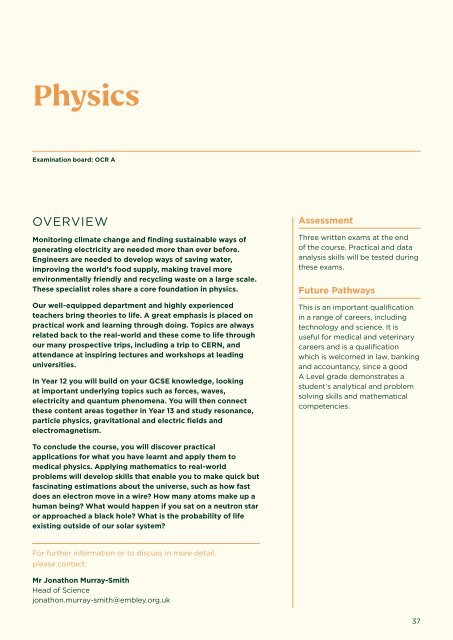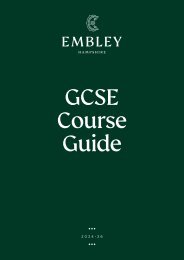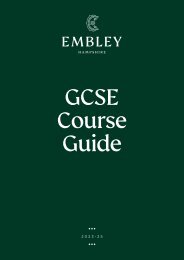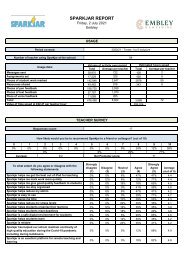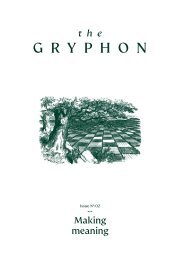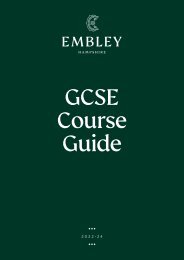Embley Sixth Form Prospectus
You also want an ePaper? Increase the reach of your titles
YUMPU automatically turns print PDFs into web optimized ePapers that Google loves.
Physics<br />
Examination board: OCR A<br />
OVERVIEW<br />
Monitoring climate change and finding sustainable ways of<br />
generating electricity are needed more than ever before.<br />
Engineers are needed to develop ways of saving water,<br />
improving the world’s food supply, making travel more<br />
environmentally friendly and recycling waste on a large scale.<br />
These specialist roles share a core foundation in physics.<br />
Our well-equipped department and highly experienced<br />
teachers bring theories to life. A great emphasis is placed on<br />
practical work and learning through doing. Topics are always<br />
related back to the real-world and these come to life through<br />
our many prospective trips, including a trip to CERN, and<br />
attendance at inspiring lectures and workshops at leading<br />
universities.<br />
In Year 12 you will build on your GCSE knowledge, looking<br />
at important underlying topics such as forces, waves,<br />
electricity and quantum phenomena. You will then connect<br />
these content areas together in Year 13 and study resonance,<br />
particle physics, gravitational and electric fields and<br />
electromagnetism.<br />
Assessment<br />
Three written exams at the end<br />
of the course. Practical and data<br />
analysis skills will be tested during<br />
these exams.<br />
Future Pathways<br />
This is an important qualification<br />
in a range of careers, including<br />
technology and science. It is<br />
useful for medical and veterinary<br />
careers and is a qualification<br />
which is welcomed in law, banking<br />
and accountancy, since a good<br />
A Level grade demonstrates a<br />
student’s analytical and problem<br />
solving skills and mathematical<br />
competencies.<br />
To conclude the course, you will discover practical<br />
applications for what you have learnt and apply them to<br />
medical physics. Applying mathematics to real-world<br />
problems will develop skills that enable you to make quick but<br />
fascinating estimations about the universe, such as how fast<br />
does an electron move in a wire? How many atoms make up a<br />
human being? What would happen if you sat on a neutron star<br />
or approached a black hole? What is the probability of life<br />
existing outside of our solar system?<br />
For further information or to discuss in more detail,<br />
please contact:<br />
Mr Jonathon Murray-Smith<br />
Head of Science<br />
jonathon.murray-smith@embley.org.uk<br />
37


